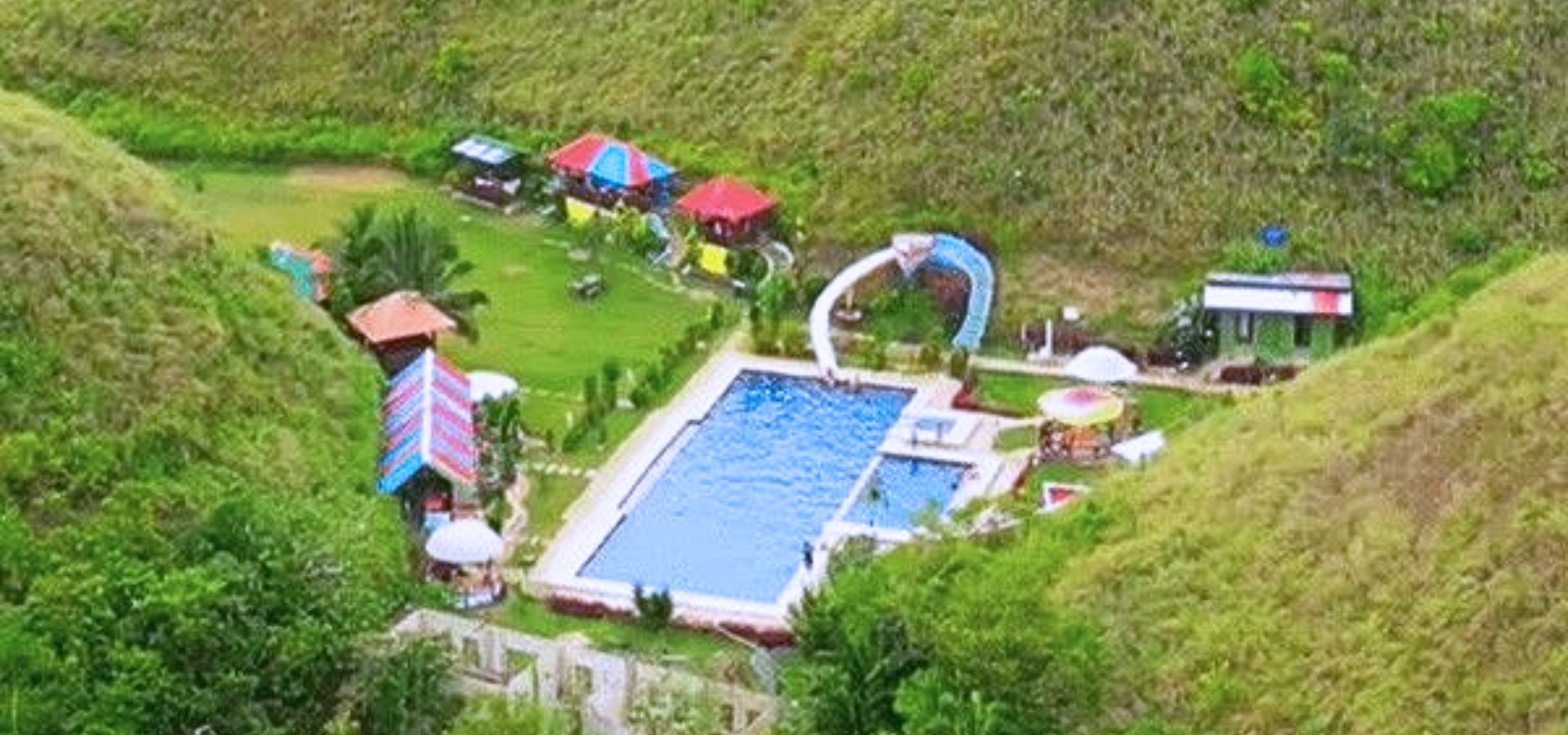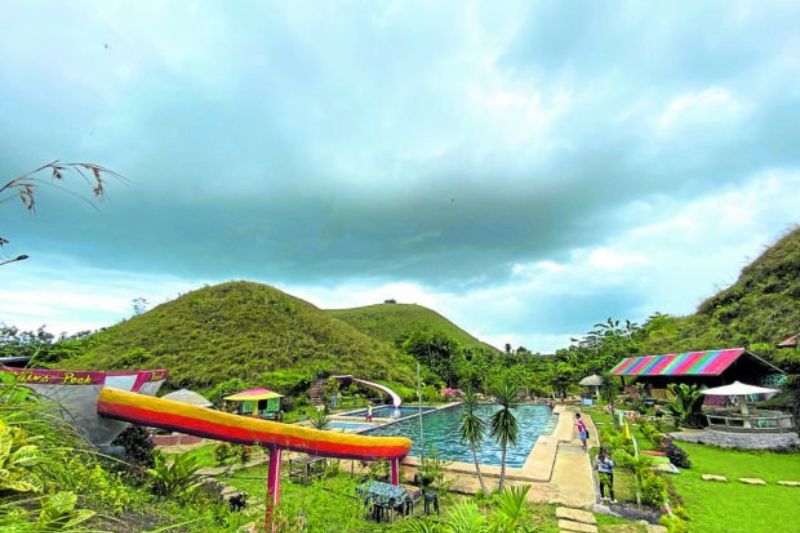
The recent development of Captain’s Peak Garden and Resort, nestled within the famed Chocolate Hills of Bohol, has ignited a fierce debate in the Philippines over conservation and sustainable tourism. This new resort, offering breathtaking views and high-end amenities, has drawn both admiration and criticism, leading to a temporary closure amid public outcry and governmental scrutiny.
A Protected Natural Wonder Chocolate Hills
The Chocolate Hills, a unique geological formation of over 1,700 conical limestone mounds, have long been a symbol of the Philippines’ natural beauty. These hills are not only a tourist attraction but also a protected area, declared as such in 1997 under the administration of then-President Fidel V. Ramos. This designation was intended to safeguard the hills from inappropriate exploitation and to preserve their natural beauty for future generations.
The Resort Controversy
The controversy began when a local travel influencer shared a video showcasing the resort’s luxurious facilities, set against the idyllic backdrop of the Chocolate Hills. The video quickly went viral, sparking a wave of outrage among environmentalists, lawmakers, and the general public. Critics argue that the resort’s construction is a blatant misuse of a national geological monument and raises serious questions about the enforcement of environmental laws in the Philippines.

In response to the public outcry, the Department of Environment and Natural Resources (DENR) ordered the resort’s temporary closure. This move has led to a broader debate about the country’s approach to balancing tourism development with conservation efforts.
Government Response and Public Outcry
The situation has caught the attention of lawmakers in Manila, with some calling for an investigation into how the resort was approved in the first place. House Deputy Majority Leader Erwin Tulfo has been vocal in his criticism, describing the development as a “blatant abuse of our natural resources” and questioning the processes that allowed it to happen.
The resort’s management, however, has defended their actions, stating that they have complied with all environmental regulations and obtained the necessary permits. They argue that their project was designed with minimal environmental impact in mind and claim to have followed all legal requirements during the construction process.
The Broader Implications for Philippine Tourism
This controversy highlights the ongoing challenge that the Philippines faces in managing its booming tourism industry while protecting its ecological treasures. The country is home to more than 7,000 islands, each with its own unique natural attractions, from coral reefs and pristine beaches to mountains and volcanoes. Tourism is a significant contributor to the nation’s economy, accounting for 6.2% of GDP in 2022, and the government sees even greater potential for growth as pandemic restrictions ease.
However, the push for tourism development often comes into conflict with conservation efforts, especially in remote areas where natural wonders are located. While tourism can bring much-needed economic benefits to local communities, it also poses a risk to the environment if not managed sustainably.
The Need for Sustainable Development
Senator Nancy Binay, who chairs the legislature’s tourism committee, has expressed concern that the DENR may be issuing Environmental Compliance Certificates (ECCs) too readily in the name of tourism development. She argues that true ecotourism should not come at the expense of degrading natural monuments like the Chocolate Hills.
This incident serves as a reminder of the importance of sustainable development practices that balance economic growth with environmental preservation. As the Philippines continues to promote its natural attractions to the world, it must also ensure that these treasures are protected for future generations.
Wrapping up
The temporary closure of Captain’s Peak Garden and Resort amidst this controversy underscores the complex interplay between development and conservation in the Philippines. As the country navigates the challenges of promoting tourism while safeguarding its natural wonders, the Chocolate Hills debate will likely serve as a key case study in finding a sustainable path forward. The outcome of this situation may well shape the future of how the Philippines balances its rich natural heritage with the demands of a growing tourism industry.


Leave a Reply